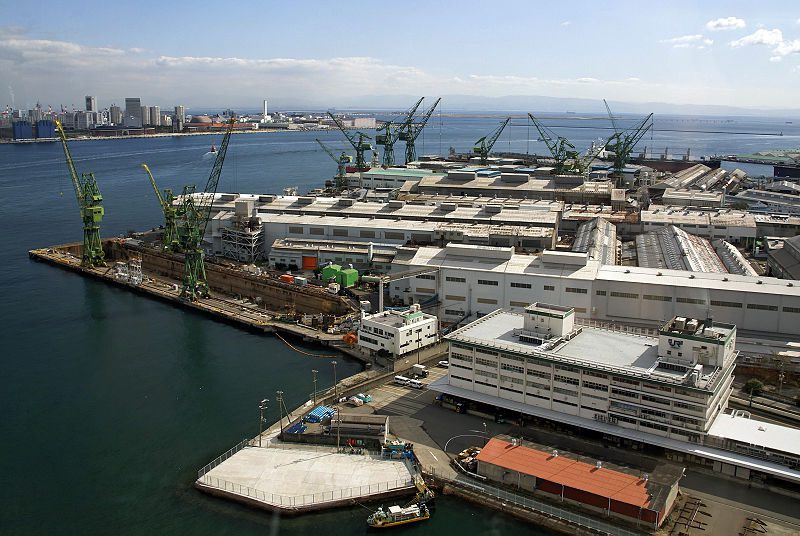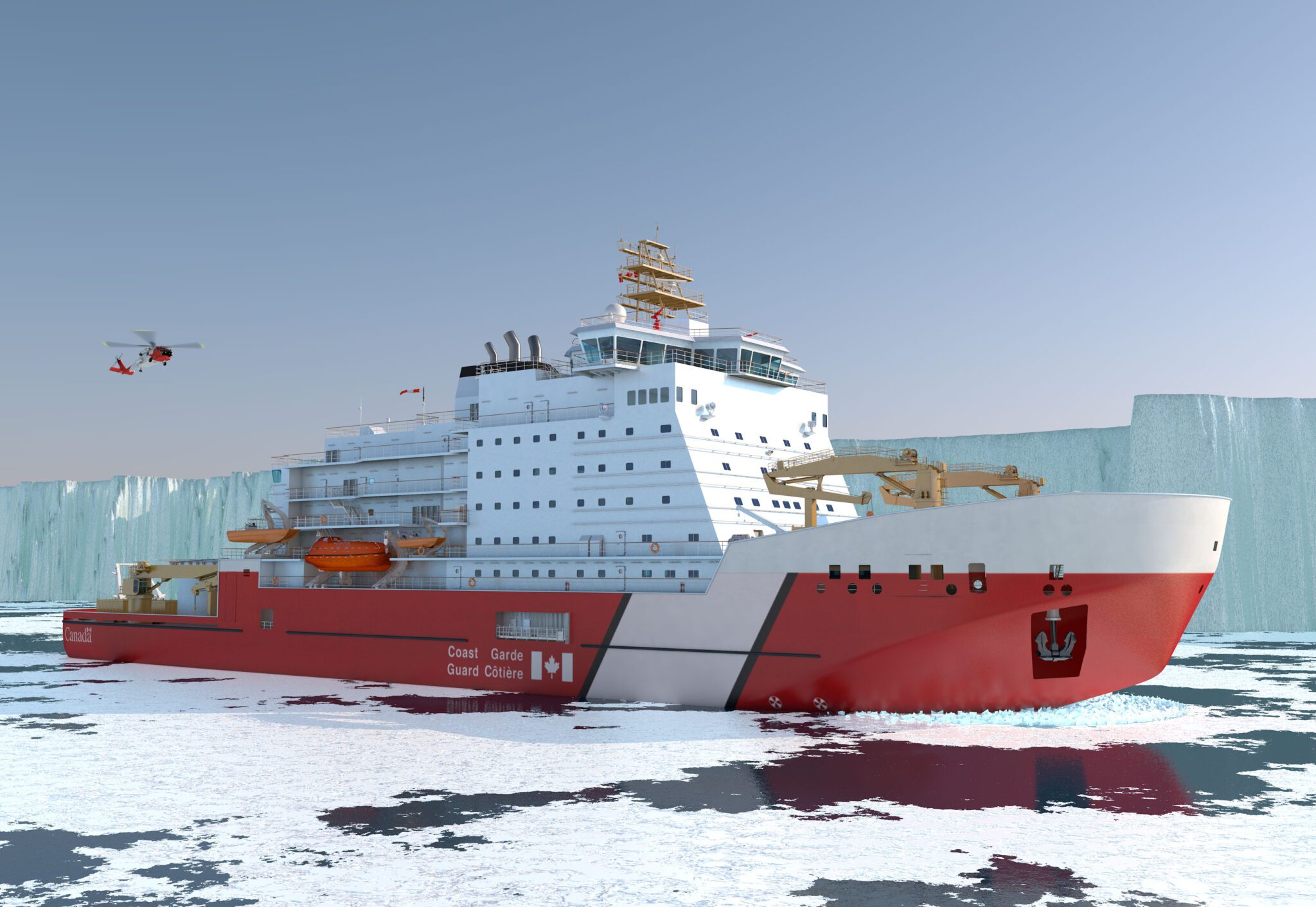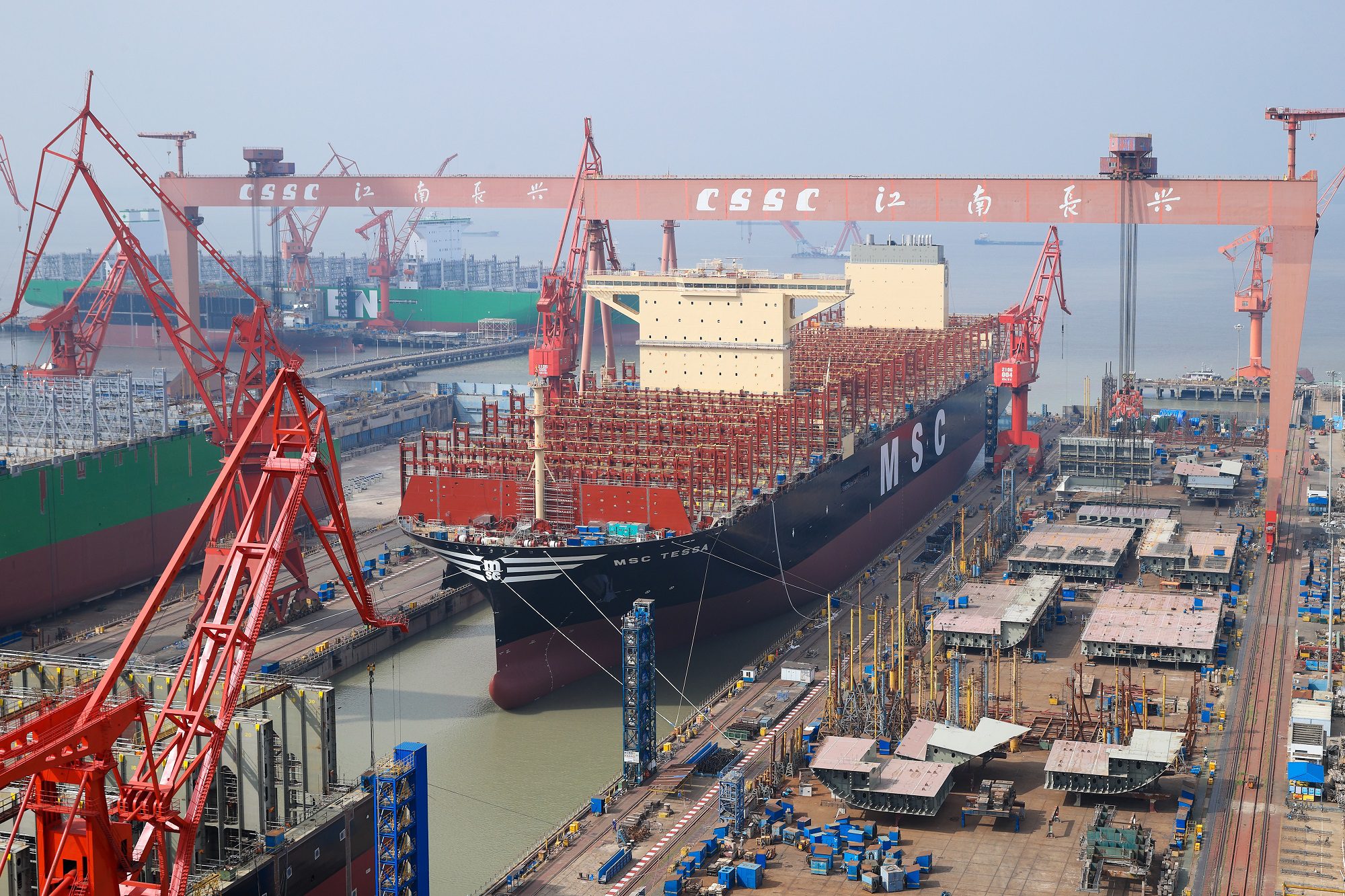Kawasaki Shipbuilding Kobe Shipyard & Machinery Works
By Masumi Suga and Shigeru Sato
(Bloomberg) — Kawasaki Heavy Industries Ltd., Japan’s third-biggest shipbuilder, would consider merging to thin the number of Japanese companies in a crowded field.
“In the future, a merger is one option to consider given that there are too many companies in this industry,” Senior Executive Vice President Mitsutoshi Takao told reporters in Tokyo today after the company reported that net income may rise 10 percent this fiscal year, lagging analysts’ estimates.
The comments follow a report April 22 in the Nikkei newspaper that said Kawasaki Heavy and Mitsui Engineering & Shipbuilding Co. are in talks to combine. Kawasaki Heavy hasn’t entered into talks with Mitsui Engineering and a merger wasn’t discussed at the company’s board meeting today, Takao said.
The companies have denied they’re pursuing a combination of some kind. Mitsui Engineering has no plans to start merger talks, spokesman Masahiro Takaoka said today. Kawasaki Heavy issued a statement to the Tokyo Stock Exchange on the day of the Nikkei report saying it had “no truth” in it.
Kawasaki Heavy, which produces everything from submarines for Japan’s self-defense forces to Ninja racing bikes, will pursue mergers and acquisitions to accelerate growth in new business areas such as offshore resource development and oil- and gas-related operations, the company said in a statement outlining a mid-term business plan today.
Yen Pressuring Earnings
“We won’t rule out the possibilities of M&A to secure necessary businesses,” President Satoshi Hasegawa said today at a press conference in Tokyo. Prioritizing the quality of its products is the goal, not gaining size at its shipbuilding operations in Japan, he added.
Kawasaki Heavy shares were unchanged at 330 yen at the end of trading in Tokyo after earlier rising as much as 6.1 percent. Mitsui Engineering shares fell 3.1 percent to 186 yen.
Pressure on Japanese companies has risen in the face of competition from lower-cost producers in China and South Korea. Though it has weakened this year, the yen’s recent strength has also acted as a catalyst.
Even with the yen’s fallback, Japanese shipbuilders are still being strained, executives in the industry say. The currency would have to fall to 110 yen for domestic shipbuilders to be profitable, Shinjiro Mishima, president of Japan Marine United Corp. said in an interview last month.
The yen, which has declined about 13 percent versus the dollar since the beginning of the year, traded at 99.20 as of 5:40 p.m. Tokyo time.
Steps Needed
Japanese shipbuilders have lost market share to Chinese and South Korean rivals, which expanded facilities and contracts by taking advantage of lower costs.
Japan’s government is urging domestic shipbuilders to take radical steps, including mergers, to become more competitive against Asian rivals.
“Now is their last chance to take steps for long-term survival for the next generation of workers,” Hidenori Imade, director of the shipbuilding division at the country’s Maritime Bureau, said April 15 in an interview.
Japan held a market share of 18.3 percent last year as measured by ship completion, compared with China’s 40.9 percent and South Korea’s 32.9 percent, according to the Shipbuilders’ Association of Japan, which cites researcher IHS.
Kawasaki Heavy, based in the western port city of Kobe, was founded as a shipbuilder in 1878. The company has grown into one of Japan’s top three makers of heavy machinery.
Cost Cuts Eyed
Cost cuts remain the most immediate way for Japan’s shipbuilders to boost competitiveness, JMU’s Mishima said in the March interview. JMU was formed Jan. 1 by the merger of the shipbuilding units of JFE Holdings Inc. and IHI Corp.
“Cost reduction is the only way for us to be profitable as we can’t rely on the yen’s declines,” Mishima said.
Oversupply is also acting as a drag on Japanese shipmakers, Takahiro Mori, an analyst at Bank of America Merrill Lynch, wrote in a report dated April 22.
“Without shipyard closures, a merger would present no benefit for either company’s shipbuilding operations and would yield very little synergy in other areas,” Mori wrote, addressing the possibility of a Kawasaki Heavy, Mitsui Engineering combination.
Capacity Cuts
Mitsui Engineering, which is based in Tokyo, plans to cut operations at its domestic shipyards by 10 percent this fiscal year because of a slump in orders, Mitsui’s Takaoka said.
Consolidation already features on Japan’s industrial landscape as competitive pressures mount.
Mitsubishi Heavy Industries Ltd. and Hitachi Ltd. said last year that they plan to combine their energy-equipment businesses by January, deepening ties between two of Japan’s biggest industrial manufacturers.
Nippon Steel & Sumitomo Metal Corp., the world’s second- biggest steelmaker, was formed by a domestic merger in October to become more competitive with steelmakers in China and South Korea.
Copyright 2013 Bloomberg.

 Join The Club
Join The Club











